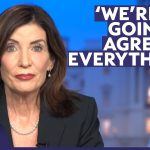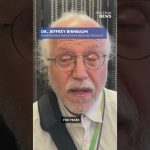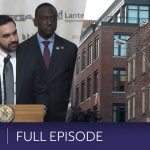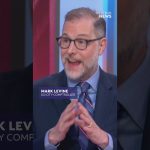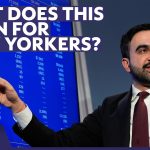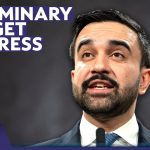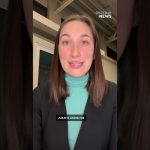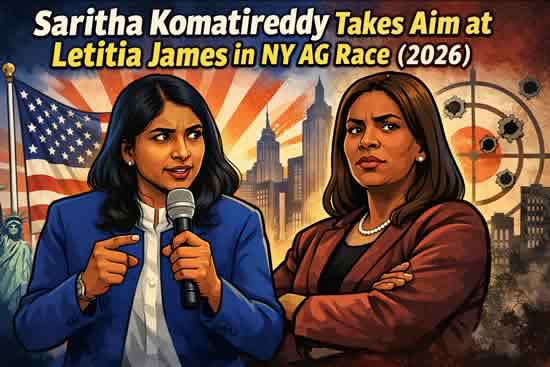Deputy Mayor Fabien Levy, Communications: Hi everybody. This is Fabien Levy, deputy mayor for Communications. Thank you for joining us today. We have Mayor Eric Adams here to talk about his first full day in Israel. We also have Eric Goldstein, the CEO of UJA, who’s helped sponsor the trip. So with that, I’ll give it to Mayor Adams, and if you have a question, just remember to click the raise hand feature.
Mayor Eric Adams: Thank you. Thanks so much, Fabien. You said first full day, I feel like it has been two days because they’ve been full back-to-back. And I really want to thank Eric and UJA for organizing and laying out a full packed schedule as we maximize our time here in Jerusalem.
And I want to thank the people of Israel. Their welcome and hospitality has been extremely warm and inviting. This is my first trip as a mayor. I was here previously twice, and when I visited this region on a number of occasions, but I enjoy returning again. And it’s no secret how much I appreciate and love this nation, what it represents. I represented as the borough president, one of the largest Jewish populations outside of Israel, and now as the mayor of the city of New York to represent the people of the Jewish community in New York City.
We have an unbreakable bond, New York and Israel, and we’re going to continue to build on that, and I am blessed to continue to do so as the mayor. And I’m grateful for the opportunity to see so many places where history has been made and speak with so many people who are dedicated to creating an even better future for the nation of Israel.
Last night I was happy to start this trip with a welcome reception with many of the faith leaders. We were able to see those who are Christians, those who are of Jewish faith, as well as Muslims and those from different parts of the globe. That diversity is what really makes this country an important place. And I also got to spend time with Jerusalem Mayor Lion, my counterpart. He showed me some of the good food and amazing evening life that they have in Jerusalem, and it was extremely enjoyable. And I was really pleased to sit down and go visit Rabbi Kohn. He’s in the hospital. He’s a well-known leader, not only here in Israel, but across the globe in general, but specifically in many of my Jewish constituents that live in Brooklyn and Manhattan and Queens.
One of the most powerful visits today was — This is my second time visiting Yad Vashem. It’s a very powerful exhibit, and a new exhibit that they opened to show the power of imagery, with pictures and how many parts of the Holocaust was distorted on many ways, and how the images played an impactful role. And we just always have to be conscious that we must document history appropriately. We stopped by the Western Wall and had an opportunity to visit there, and I think of my mother who always wanted to come to Israel. My mom never was able to do so, and just had a special thought for her while I was there And just had a special thought for her while I was there and as we continue to move through the Old City.
Today, we sat down in addition with our faith business leaders we met with today, Prime Minister Benjamin Netanyahu and the Minister of Foreign Affairs, Eli Cohen. It was great to meet also the leaders of Israel’s protest movement and just hear their thoughts because these are historical moments and I think we should all watch the history play out in all of our countries. And I just want it to be here, not to interfere, but just to learn. And I’m aware that my trip comes at a pivotal moment for Israel, and I believe the people of Israel will make the determination on how they want to move forward.
As mayor of the city whose residents can hold widely different and opposing views on so many subjects. You heard me say over and over again, 8.8 million people, 35 million opinions. So I clearly understand the importance of working through contentious issues and having difficult discussions. And we know democracy is not easy, and it is only by confronting our differences that we can emerge stronger. All of my conversations have centered around working together, building that partnership, making sure we fight antisemitism, and create opportunity for everyone. This is an important moment as I say over and over in history and all over the globe. We are dealing with something that the Israeli people have recognized. Everything from climate change to the migrant crisis, antisemitism, and extremism of all kinds. This is playing out on the stage of our globe, and it’s playing out on the streets of New York.
And these issues have no boundaries. And we need to align ourselves with people who believe in public safety, family, faith, and moving our countries in the right direction. And so I’m heartened by all I have seen and discussed here so far. I look forward to another productive day tomorrow. We have a full-packed day. We have more to do this evening, and we have a full-packed day tomorrow. Our goal is to really embrace technology, use it to better run our city and to see how we can better enhance our public safety in the city. And so I enjoyed immensely the exchange of ideas and the opinions which made me feel right at home in Israel. So right now, I’ll take a few on-topic questions that you may have.
Deputy Mayor Levy: Actually, mayor, just right before we do that, we’ll hear from Eric from UJA, just a little bit about the trip as well.
Eric Goldstein, President, UJA-Federation of New York: Thank you, Fabien. It’s really our privilege to have Mayor Adams with us in Israel. Mayor Adams is the mayor of the City of New York, the largest Jewish community outside of Israel. And coming here is an important statement about the importance the mayor attaches to understanding a country that’s so important to so many people in New York. The mayor this morning went to Yad Vashem at a time of growing antisemitism around the world, but also very much in our own backyard in New York. And the mayor said never again is not a slogan. It’s something we need to actively work against in terms of preventing, combating antisemitism in all forms of hate. And we are incredibly heartened by the mayor’s commitment to fighting antisemitism with us. Jewish community cannot do this alone. It requires people of all faiths in good faith to work together against hate.
Beyond that, we’ve had a remarkable time with the mayor, meeting faith leaders from a very broad diverse spectrum, and also a meeting with leaders of innovation and technology in Israel. So much we can share and learn from each other. Again, we’re grateful to be able to bring Mayor Adams to Israel and very, very grateful for what he does in terms of his strong leadership for the people of New York.
Question: I would like to ask you why it was so important for you to meet the head of the protest, and did you speak about the judicial reform with Prime Minister Netanyahu too?
Mayor Adams: I listened. I didn’t weigh in. As I stated, I think the people of Israel will determine their destiny. I thought it was important for me to meet with both sides here because I know that when I return to the city of some of my Jewish constituents will ask me questions, and I want to be able to share what my conversations were, but I did not give my opinion one way or another. I have many challenges in my city, and I wouldn’t want someone to come in and interfere with how I work them out.
Question: Hi, Mr. Mayor. Hope you’re doing well. So yeah, just in your op-ed that was posted in the Jerusalem Post, you mentioned learning about how Israel has been able to incorporate immigrants into their country. Have you seen anything so far on your trip that you can take back to New York City in terms of handling the migrant crisis here that maybe you didn’t think of before?
Mayor Adams: Yes, I recall my last trip, there was a large number of Ethiopian refugees and the country wanted to make sure that they assimilated them into their society. As I moved around, I saw them, I saw them in different roles that they’re playing in government. Clearly, they were of Ethiopian descent. And it comes down to the right to work. Something that you’ve heard me say over and over again in New York, the power of being able to work is the power to allow you to contribute to your society. And as I moved around, I saw the diversity in all areas, and it was clear that the people had a right to work. And I think that that is our pathway forward in America, allowing those over 100,000 migrant and asylum seekers that are here in a substantial number that are across our country. We must give them the right to work.
Question: Okay, great. Hi, Mr. Mayor. Thank you so much for coming. I wanted to ask about two things. First, your meeting with Prime Minister Netanyahu. One, you said that you wanted to hear both sides. Does that mean that yes, you did discuss judicial reform with the Prime Minister, and what else might you have discussed with him? And second, I understand you met with one of the senior settler leaders today, Binyamin Regional Council Head Israel Gantz. Did you know that Foreign Minister Cohen was going to facilitate that meeting, and does it express an opinion that you might have on settlements?
Mayor Adams: One, the Prime Minister, yes, he did talk about judicial reform. In addition, we had a great conversation about technology and how the country was able to quickly come out of the Covid virus crisis, how they were able to recover, and learning some of the things that they did in relationship between Pfizer and the country. And I believe the smart decision that they made to use the vaccine and some of the challenges of making those decisions right away. And learning from when you’re leading a nation, how some of your decisions are tough. And we shared our different views and our different thoughts on how do we recover in these very challenging times.
And I did not go into any conversations with settlement. That was not mentioned at all in the meeting when we met with other leaders. At no time did we talk about settlements. That is not why I’m here. I’m here to deal with the issues that I stated around public safety, around technology, and to clearly show my support for the Israeli people.
Question: Fabien, mazel tov on the promotion. Mr. Mayor, thanks for taking care of this today. I know you don’t want to weigh in and meddle in the judicial reform issue, which is admirable, but I guess what happens in Jerusalem doesn’t stay in Jerusalem and it affects the Israeli tech sector, which is prominent in New York City specifically. It affects possible Israeli immigration to America, and New York is always a potential landing spot. So while you don’t want to weigh in on the specifics of four against whatever, how does the controversy around the reform impact reform your city? Have you seen an impact yet?
Mayor Adams: No, we have not seen an impact at all in the city. We continue to receive a great deal of tech startups coming to New York. There’s a clear relationship around investors. Many of the investors in tech startups are coming from New York City and America. And so we have not witnessed any major impact. And again, I believe the Israeli people are going to find a resolution to this issue. I think that they’ve dealt with resolutions to major issues in the past, and this is one of the many in the chapter of this great country.
Question: Thank you. Mayor, it’s good to talk to you, as always.
Mayor Adams: Thank you.
Question: And Fabien, again, mazel tov on your promotion.
Deputy Mayor Levy: Todah rabah.
Question: And I wanted to ask you, mayor, sometimes I ask obvious questions because I can’t quote myself and I need to quote you. So what was the message that you heard from the protestors? What was your interpretation? What did you hear from them?
Mayor Adams: I heard from them that the proposed changes will have a major impact on their democracy, and I heard from the prime minister that the proposed changes will have a major step forward on for democracy. And so it just clearly shows that there are two different stance here and the only way you could come to a conclusion is again, to allow the people of the country to make the determination.
Question: Mayor Adams, would you mind telling me some of the takeaways you had on security and technology and how they might be applied to the NYPD? I know you have some Police Department leaders with you.
Mayor Adams: Yes. The first deputy commissioner is with me as well as assistant commissioner as well. We had a series of tech companies around public safety that presented to us last year and we wanted to expand on that. The use of artificial intelligence, the use of security cameras. We’re going to visit, tomorrow, the police academy, where we are going to really get to the heart and soul of the public safety tools that are available on how to do early detections of criminal behavior and how to just further enhance what we have in our toolkit to make our city safe. So tomorrow is really the heart and soul of our visit on the public safety part. Today we looked at a lot of food tech, new food interventions, innovations, but tomorrow’s the heart and soul of our public safety visit when we go to the Police Academy and some of the tech companies.
Question: Hi, Mr. Mayor. My question is in relation to what Emily just asked. There are some privacy concerns when it comes to technology and public safety. Your trip right now is focusing on that. Are you weighing those concerns when you’re looking at this new technology meeting with these sectors of the Israeli business? Is that something that weighs on your mind?
Mayor Adams: Always. America is very clear on privacy concerns that we would never do anything that’s going to violate any privacy concerns. And each time we sit down and look at a new piece of technology, we put it through the prisms of is this in violations of any of the rules that we have in place? Some countries outside of Israel and others use technology that just will not fit in America’s belief on privacy. We are not going to allow that to happen. We’re going to stay within the barriers of our law and the guardrails of our laws.
Question: We wanted to know, you mentioned that you surveyed a lot of different technology advances that were going on in Israel. Can you give us a little bit of examples of what forms of technology that you were exploring with your hosts and your response?
Mayor Adams: There was two levels of the meetings. The first level of the meetings we took place were with large tech companies. It was hosted by the Bank of Israel and we wanted to know how do we remove the barriers to continue to grow Israeli tech startups in New York City. It was an eye opening experience because there was some clear specifics of what those who wanted to do business in New York identified as the barriers to expanding. And we’re going to immediately implement a dialogue and come up with a blueprint on how to expand our tech startups. The second was in food tech. We saw different products that the traditional way of producing food has impacted our planet, such as producing honey only from bees.
We were able to see a production of honey that does not need bees at all. It was good tasting in honey.
It was something that is healthy for the environment and tasteful for the consumer. We were also able to see lab meat in other form, laboratory meat and other forms of meat byproducts that’s made out of natural products with zero fat. One of the dangers of meat production that leads to much of the health concerns we have is because of the fat contents. And we were able to see products particularly around the food space that did not produce the same level of health concerns. And so those are two areas that were important to us today and we’re looking forward to some of the great technology that we’re going to see tomorrow.
Question: Hello, Mr. Mayor, can you hear me?
Mayor Adams: Yes, I can. How are you?
Question: Very good. So during your visit here to Israel, have you spoken about the need to combat antisemitism? As the Mayor of New York, how do you see the problem of antisemitism in the city and how do you plan on combating antisemitism or cooperating with the state of Israel and combating antisemitism?
Mayor Adams: Well, I think the increase in hate in general, but specifically antisemitism needs to be a global response and a local response. And that was why we traveled to Greece to meet with over 50 mayors from across the globe to address antisemitism. But right in New York City, we’re doing a series of things. Number one, I think we made a great mistake that we thought we did not have to continue to build out the pipeline of young people to embrace our various cultures. And what we are doing with our Breaking Bread, Building Bonds initiative, a thousand dinners over the city, 10 people at each dinner all come from a different background and ethnicity so they can engage in conversations to learn from each other and in return, they will become an ambassador in our city to go out and continue to spread why we can live among each other and respect each other differences.
The second is to strongly prosecute, arrest and apprehend those who carry out antisemitic acts. And we are not going to downplay it and try to figure out how not to report the crime as it is. I have given clear directions to the commissioner and our Hate Crimes Unit that we will vigorously investigate and arrest those who carry out antisemitic acts. And that’s what we will continue to do. And we believe that our prosecutors should have a zero tolerance, no plea bargaining rule for anyone that commits a hate crime in general, specifically a crime of antisemitism. And so I think it’s a combination of how we are bringing together our various religious and ethnic groups. It’s a combination of our Breaking Bread initiative. It’s a combination of how we’re teaching of these lessons in our schools.
That combined effort will start to build out the pipeline of the next generation of addressing why we are natural partners to fight against hate. That is something I think we failed to do. I know of the Michael Millers, the Eric Goldstein, but my son and my son’s sons need to know of the Michael Millers and Eric Goldsteins of his generation. And I think we have fallen off from doing that and we need to reignite that.
Question: So you said that the message that you’re taking away from Israel is that you see that in terms of migrants there’s the right to work. Are you calling on President Biden to address and to take away the same kind of right to work that they have in Israel and do it in the United States for the migrant problem we have here. Taking, for example, the fact that Israel has taken a lot of migrants from other countries all around the world and has assimilated them in a positive way. And would you say to the president that he should follow that same example and help the United States assimilate its migrants the way Israel has done? And also, I wonder your people will make that argument in court tomorrow when the right to shelter law comes into effect.
Mayor Adams: Thank you, Marcia. I think I have been extremely clear of the importance of right to work and today just reinforce that as I stated, I was here a few years ago and I saw the influx of refugees from Ethiopia, and now I’m seeing the results of their ability to work and to incorporate themselves into society. Their presence is a clear one. They’re very much engaged in the public safety of the country and other services. And I believe that that should be a symbol to our country. And I’m hoping the White House does see the importance of allowing people the right to work and we’re going to continue to do what we have to do to prepare the right documentations.
I was happy to hear that we get $20 million additional from the governor who’s going to help us in the preparation of the documents that are currently the migrant asylum seekers need. And tomorrow in court, Judge Sylvia Hinds-Radix, who’s the corp counsel, she’s going to lay out our position on what we believe in. Part of the response that we have to submit asks what did we need from the federal government, that would be included in that conversation.
Deputy Mayor Levy: Great. Thank you very much, mayor. Thank you very much Eric, and thank you all for joining us. Tomorrow, again, we will try to do another one of these at the end of the day. Thank you again.
August 22, 2023
New York City Hall NYC Mayor Eric Adams Office News – Big New York news BigNY.com

